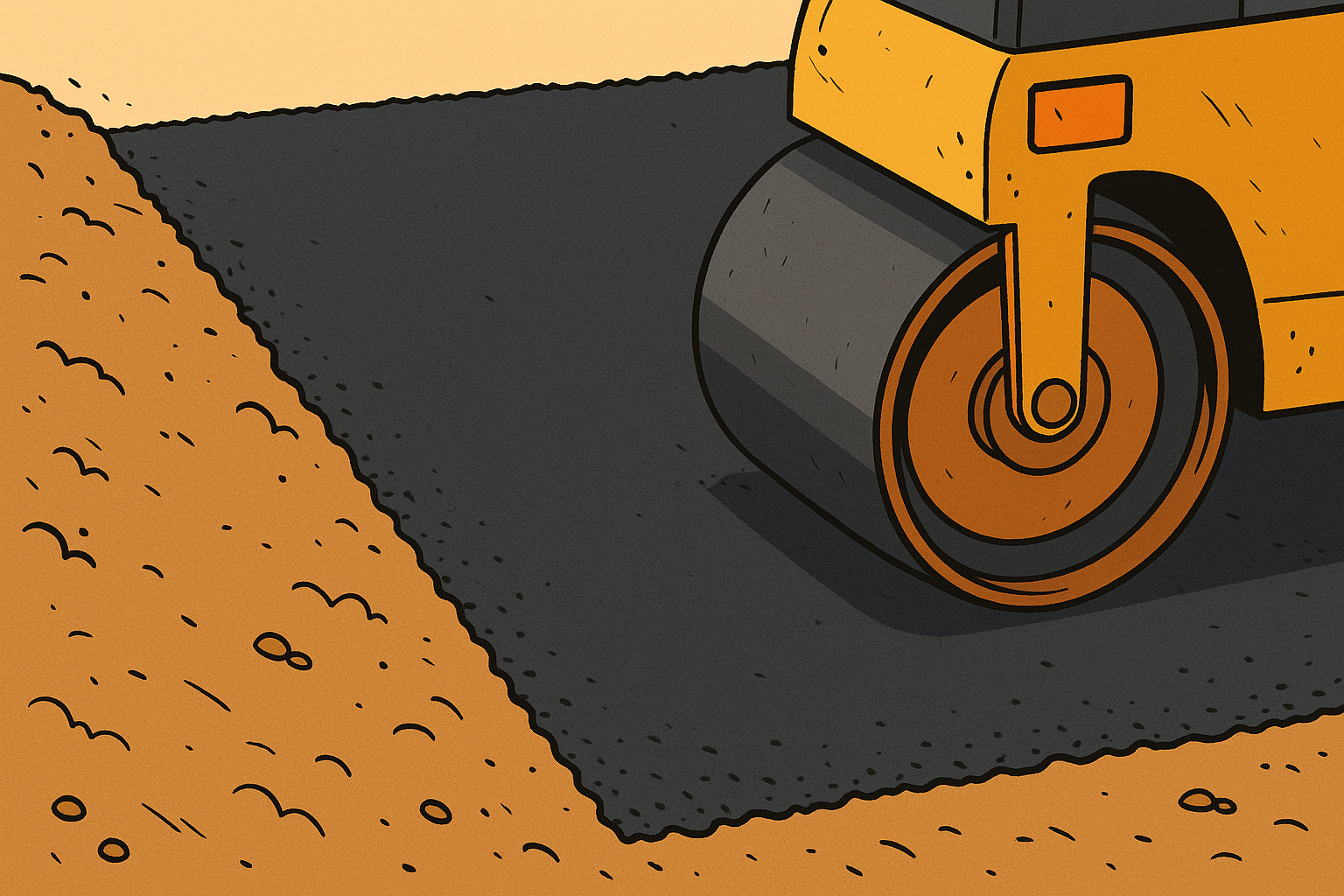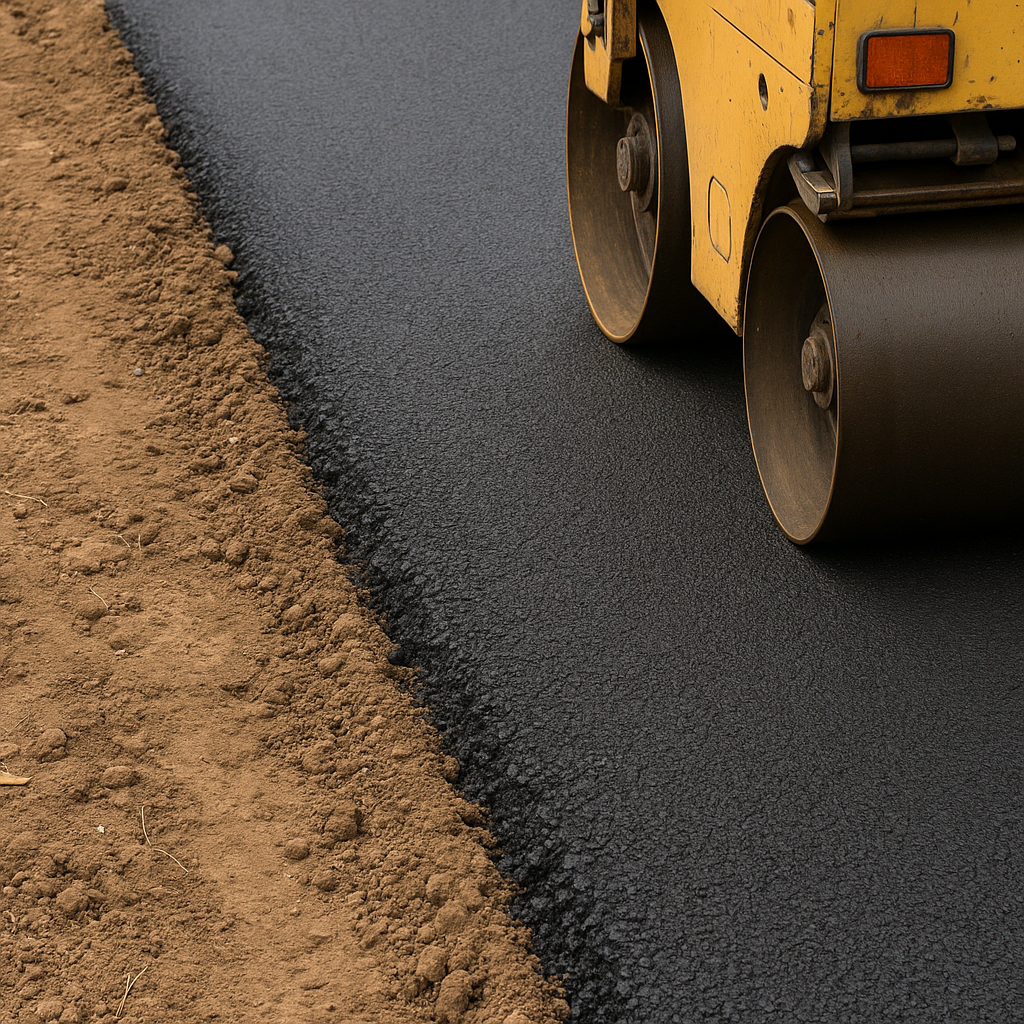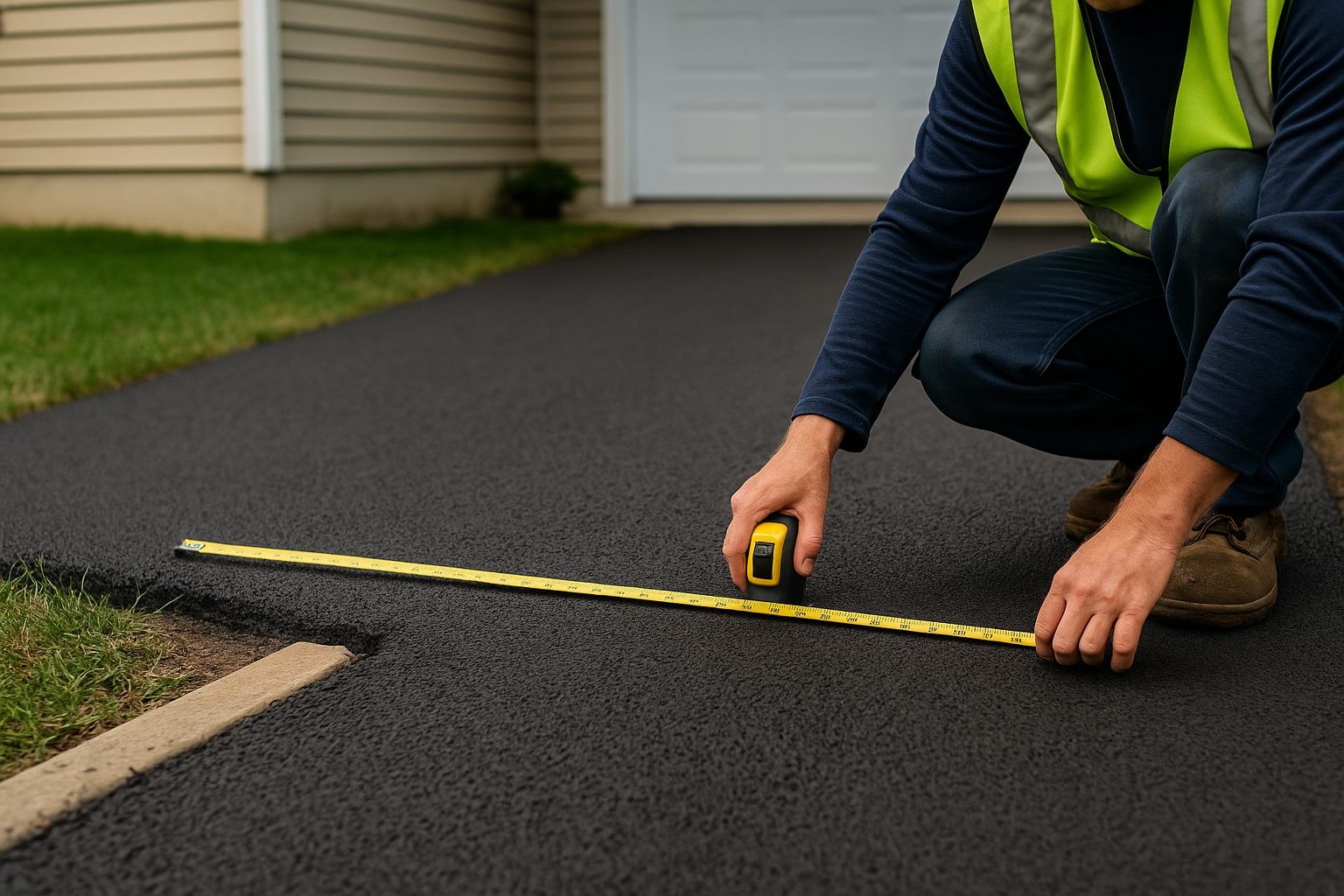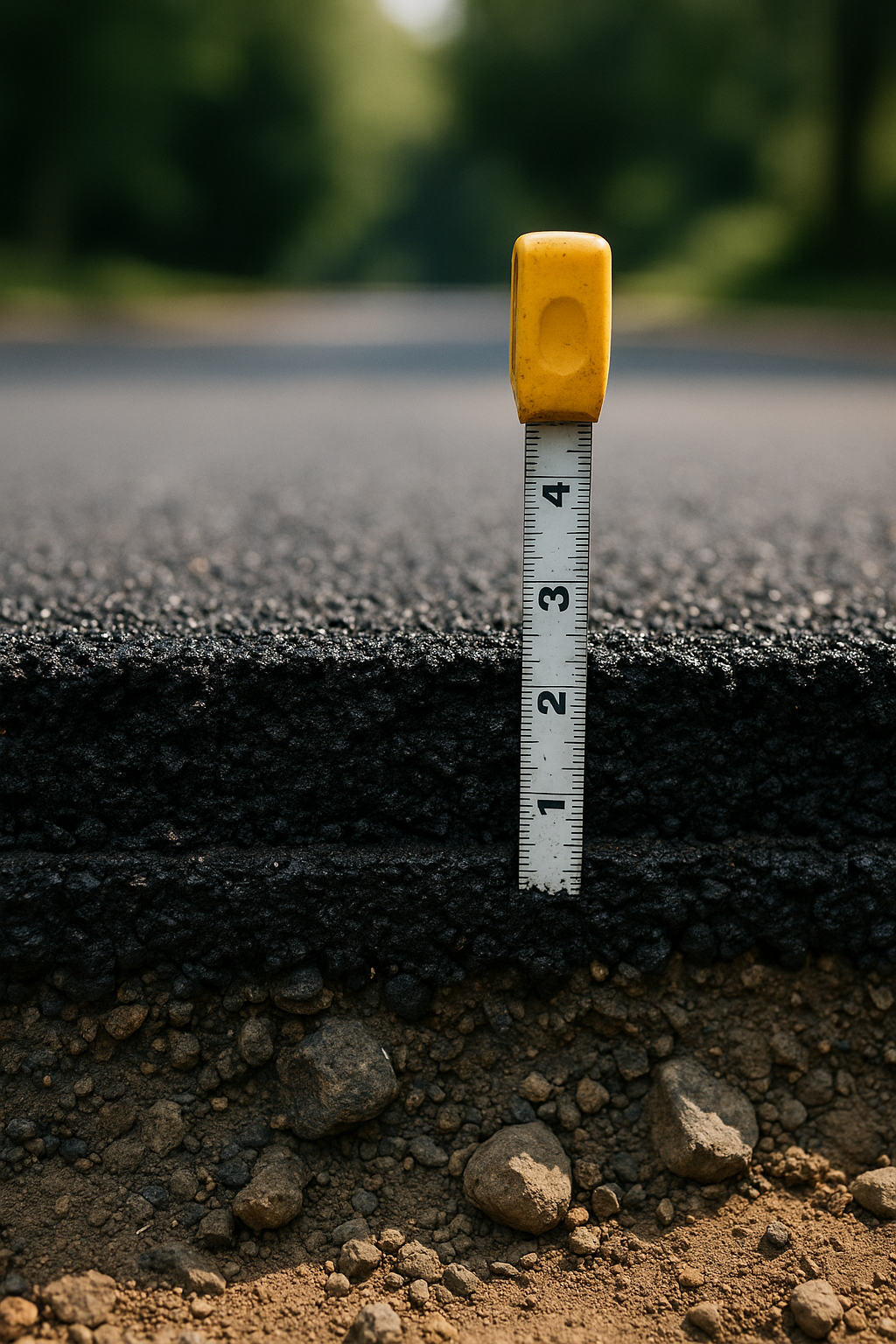Comparison Guide
Asphalt vs. Concrete: What's Best for Your Project?
Choosing the right paving material affects not only your initial investment but also long-term durability, maintenance requirements, and overall satisfaction with your project. This comprehensive guide breaks down the pros and cons of asphalt and concrete across multiple factors, helping you make an informed decision for your driveway, road, parking lot, or commercial project.

Initial Cost & Installation
The upfront investment is often a primary consideration when choosing between paving materials. Here's how asphalt and concrete compare:
Asphalt
- Cost range: $3–$7 per square foot installed
- Installation time: 1-2 days for a typical driveway
- Usability: Can often be used within 24-48 hours
- Weather limitations: Best installed in moderate temperatures
- Labor requirements: Requires specialized equipment and professional installation
Concrete
- Cost range: $5–$12 per square foot installed (higher for decorative finishes)
- Installation time: 2-3 days for a typical driveway
- Usability: Requires 7+ days to fully cure before heavy use
- Weather limitations: Cannot be poured in freezing temperatures
- Labor requirements: Requires skilled finishing work for quality results
Durability & Lifespan
The expected service life of your pavement is a critical factor in determining its true long-term value:
Asphalt
- Average lifespan: 15–25 years with proper maintenance
- Resurfacing needs: Typically every 7-10 years
- Climate performance: Flexible in freeze-thaw cycles; softens in extreme heat
- Weight tolerance: Good for standard vehicles; heavy loads may cause rutting
- Edge durability: Edges can crumble without proper support
Concrete
- Average lifespan: 30–40 years with proper maintenance
- Resurfacing needs: Rarely needed; may require sealing every 2-5 years
- Climate performance: Excellent in hot climates; can crack in severe freeze-thaw cycles
- Weight tolerance: Superior load-bearing capacity for heavy vehicles
- Edge durability: Maintains structural integrity at edges when properly installed
Maintenance Requirements
Ongoing maintenance affects both the appearance and functional lifespan of your pavement:
Asphalt
- Sealcoating: Recommended every 2-3 years
- Crack repair: Relatively simple and inexpensive
- Patching: Can be done in sections without visible seams
- Stain resistance: Shows oil and chemical stains easily
- Cleaning: Can be pressure washed but requires care to prevent damage
Concrete
- Sealing: Recommended every 2-5 years depending on exposure
- Crack repair: More complex and often more visible after repair
- Patching: Difficult to match color and texture of existing concrete
- Stain resistance: More resistant to stains but can be difficult to clean once stained
- Cleaning: Can be pressure washed and handles cleaning chemicals well
Aesthetics & Customization
The visual appeal and design flexibility of your pavement can significantly impact your property's appearance:
Asphalt
- Color options: Limited primarily to black; some tinted options available
- Texture: Uniform, slightly textured surface
- Design options: Limited to borders and layout configurations
- Aging appearance: Fades to gray over time unless resealed
- Visual integration: Creates a seamless look with connecting roads
Concrete
- Color options: Wide range of integral colors and stains available
- Texture: Can be finished smooth, brushed, exposed aggregate, or stamped
- Design options: Extensive patterns, borders, and decorative techniques
- Aging appearance: May develop surface wear but color remains relatively stable
- Visual integration: Can be designed to complement architectural elements
Environmental Considerations
The environmental impact of paving materials is increasingly important to many property owners:
Asphalt
- Highly recyclable material
- Lower energy production
- Contributes to heat island effect
- Petroleum-based product
Concrete
- Recyclable as aggregate
- Higher carbon footprint in production
- Reflects heat, reducing heat island effect
- Permeable options available
Best Applications by Project Type
| Project Type | Recommended Material | Key Reason |
|---|---|---|
| Residential Driveway | Either (climate dependent) | Cold climate: Asphalt Hot climate: Concrete |
| Commercial Parking | Asphalt | Cost-effective, faster installation |
| High-Traffic Roads | Asphalt | Quieter, easier to repair |
| Industrial Facilities | Concrete | Superior load-bearing capacity |
| Decorative Pathways | Concrete | Design flexibility, color options |
Key Decision Factors
- Climate considerations. Asphalt performs better in regions with freeze-thaw cycles and harsh winters, while concrete excels in hot, sunny climates where asphalt may soften.
- Budget timeline. Asphalt has a lower initial cost but higher maintenance expenses over time. Concrete costs more upfront but typically requires less maintenance throughout its longer lifespan.
- Repair flexibility. Asphalt repairs are generally less visible and more cost-effective than concrete repairs, which often require full section replacement to maintain aesthetic consistency.
Planning Tools for Your Project
If you're leaning toward asphalt, these resources will help you plan your project:
- Calculate precise material needs with the asphalt calculator
- Learn how to measure your space in this measuring guide
- Understand appropriate asphalt thickness in this depth guide
- Compare project costs using the project cost calculator
- Explore material pricing in this pricing guide
Still undecided? Consider your specific needs, local climate, budget constraints, and aesthetic preferences. Both materials have proven track records in appropriate applications, and either can provide excellent service when properly installed and maintained.



